
38 minute read
Our programs
For a decade, Visible Hands has delivered leadership programs moving from resistance to transcendence. In every workshop and classroom there has been talk of the power of education to achieve development and peace, there has been a new vision of the region and human networks have been established to transform reality. These programs have been governed by words that, like umbrellas, cover great concepts: they teach how to govern, innovate, and manage development, how to be a woman leader and connect. There is a powerful reason for each of these umbrella verbs: they are linked to human transformation.
Governing in Visible Hands is more than getting the chance to exercise power as well as innovating in a more real way to form creativity. The background is to engage a more positive way of relating, leaving behind a prevailing model that generate inclusion. Connecting and narrating, as well as being a woman, are a reaffirmation of natural human connections and a reconnection with what is essential. Reconnecting with ourselves and empowering talent to redefine power is the goal that defines the Visible Hands programs.
Advertisement
GOVERN 1.Poder Pacífico (“Power of the Pacific”). From its very name, the show revealed its purpose and play: Power, as a verb, means the ability to achieve a goal, but also it means it can influence the behavioral patterns of people and institutions. Pacific Power referred to the place where it was necessary to change the power relations that had established them.
This iconic program was born from the above-mentioned philosophy. It was designed to change unwritten codes of exclusion that operate in Colombia, that allow, certain leaders to enter spaces of power and others not, or that the predominance of certain elites over others based on their origin, place of study, or higher education level. Poder Pacífico decided to open an important door to Pacific leaders so that the disparity was reversed by a master’s degree designed to strengthen and give tools to change power relations and leadership dynamics.
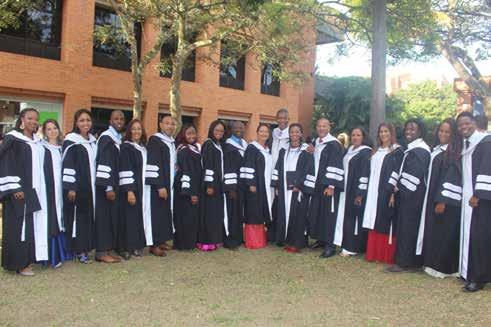
The decision to form regional and national elites outside the center of power implied and understanding that new relationships would only be possible if it began with the self-inclusion. Where each leader understands that there are no forbidden spaces or roles because of their ethnic and territorial background. The key practice is to think in terms of “we” instead of “them” in the different spaces where diversity is key for performing power.

Two Colombian universities (Icesi and EAFIT) became key players for the creation an educational ecosystem for the transformation we were looking for. When it comes to filling the gaps in existing postgraduate courses and open new possibilities to professionals in the region, first in a theme of Government and Public Policies, and then in Government and Construction of peace. With the Pacific component in mind, the master’s degrees helped the mobility of the grassroots leaders. Many of them have already reached high public positions as advisers or in spaces of incidence inside and outside the country.
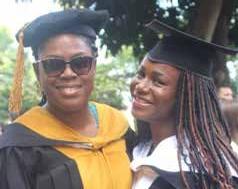
Our association with the universities that supported “Poder Pacífico” generated an institutional commitment to the Pacific region. Poder Pacífico/ Pacific Power graduated two cohorts in each university. The graduates today make up a network with more than 130 leaders that have graduated from the Master of Government. However, the major achievement is that it allowed several of the unwritten social codes of exclusion and achieve what the name of the program: May the power be the Pacific.
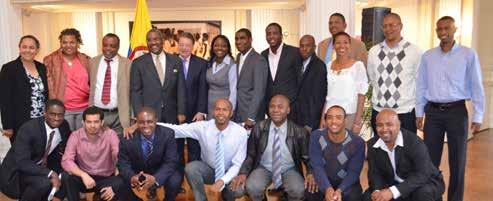
2. School of High Government “Poder Pacífico” Power had to be conquered in order to wield it. However, to reduce the gap in the Pacific, it was not enough just to win it and achieve political influence. It was also urgent to change the power relations. In the process of opening spaces, there is a greater need: to train social, public, and private leaders in governance. The Pacific, where life sprouts with vitality and biodiversity is as varied as its culture, it still needed to sow the seed.
Visible Hands understood that power was not just an individual conquest of leaders fighting on their own, but a totality of bonds, an interwoven web, the vessels communicators in which experiences are exchanged and ideas are compared to build an interconnected, purposeful, and strategic leadership. The high number of applications to the Pacific Power master’s degree has made it clear that a school was necessary for leaders who wanted to gain technical foundations when it came to understand political language and achieving transformations.
The initiative focused on training students and, at the same time, inviting them to exchange their experiences to develop capacities in matters of government, management, policies, and leadership, while inviting them to confront their ideas and initiatives with experts at high levels. Carried out on several occasions in the four strategic nodal points of the region, Cali (which covered the North of Cauca) Buenaventura, Tumaco, and Quibdó, generated a crucial impact in the region, reaching approximately 400 participants.

Next, the Committee of the Civic Strike was created. From there, there were many processes that emerged from the Social Pastoral, which are initiatives linked to the laborer or citizen leadership, and above all relationships in all sectors, which continue to interconnect beyond the School itself. Its participants understood the importance of have a civic role, they went from complaining to understanding governance schemes to know how to move in the game of politics and, above all, they learned to play with advocacy tools.
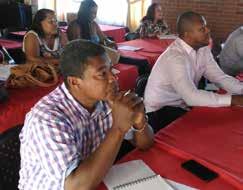


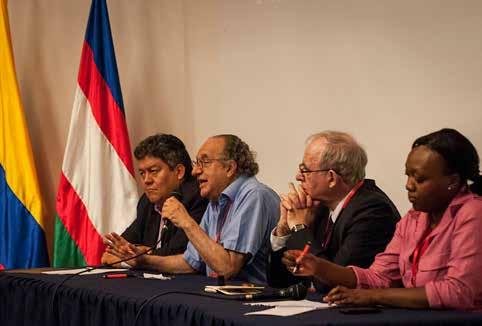
There is not one laboratory where it is possible to mix permanent tests and adjust of errors, studies, and the application of theories and new changes to arrive at one specific result. When it ceases to be efficient, politics are then called upon to become a space of creation that allows to give birth to new dynamics. Also, there are a few settings that need as much innovation as politics. This inconsistency arises because innovation is not usually associated with the political sphere in a country where custom and dominant dynamics have restricted the role of institutions, the actions of leaders, and their relationship with citizens to a traditional and limiting vision. In response to this prevailing inflexibility, innovation was a breath of fresh air. Visible Hands was aware that in a democracy, the participation the citizens had to establish new alternatives for a dialogue. Just like that, the people participate in decision making. Therefore, the bet was to create new mechanisms to improve power relations and bet on the inclusive and social.
In 2015, the Laboratory of Political Innovation for Peace was born, which had the support of the Spanish Cooperation in Colombia. Its practical approach was to empower the candidates who participated in the regional elections in October 2015, to enable them gain greater knowledge of public management and in regarding new forms of intervening in politics.

Fernando Cepeda Ulloa defined it as a step, “from intention to intent”, and therefore itself as a tactical and political exercise in which several specialized tutors went on to exert practical leadership in telling applicants how to play in politics, using ethics and identity as starting points. Each participant understood that they should have a defined political agenda if won and in favor of the people who had elected them, and who should consider being a leader with knowledge in aspects such as economics so as not to stay on the sidelines.
The program rose to prominence by revealing how current policies still do not faced with the historical institutional weakness in the territories, and how, to stop the cycle of inequality and generate dynamics of peace in the political innovation is crucial.
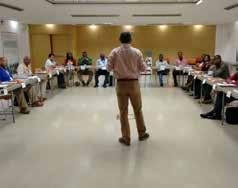
One of the premises of the program, was that the candidates had a greater tactic to approach people and that their proposals were inclusive, and to improve the quality of life of the communities and transform the reality of the region. So it was: The Laboratory of Political Innovation for Peace that strengthened the capacities of a critical mass of political leaders to start generating big changes in their communities. That was already a leap of innovation politics: of the 120 participants, more than 50% participated in the political contest and half of them won. Bleny Vallecilla was the only female city counsellors in Buenaventura. In Quibdó

INNOVATION 3. Laboratory of Political Innovation for Peace (LIPP).
and Istmina, Yessimar Álvarez and Jean Carlo Lemus were the youngest councilors.
4. AFROINNOVA. Whenever the Pacific was talked about in Colombia, it was related to Asia. In fact, the Pacific Basin linked the region with a continent that was little known and with which there was no direct relationship, apart from trade through the port of Buenaventura. When the Spanish Cooperation decided to work together with Visible Hands on a proposal of international scope, the strongest and most obvious link that emerged for the Colombian Pacific was Africa.
The African diaspora, which for a very long time seemed like a faint notion to Colombians due to the little direct interaction with the inhabitants of this continent, became a collective inspiration for innovation. Visible Hands created the platform of innovative organizations and leaders of the global African diaspora to make it visible and, in turn, empower local African and Afro-descendant populations. Colombia needed its own vision of the power of the diaspora, and for that it was necessary to look beyond its territory.
The search led to the discovery of thousands of organizations working all over the world and an the creation of a community innovation group. The idea was to build a map and then generate inspiration from real experiences and take those experiences to three great meetings in Cartagena, Palenque, Quibdó, Medellín and Cali.
They were profound and transformative encounters: recognizing each other as equals who held the experience struggles and desire to change history and feeling united with each other in Colombian territory were moving for the participants. Regardless of the language or country or of origin of the guests, the talks kept the audience captive.
Leaders were invited to carry out processes of racial equity or social transformation from their offices. All of them crossed the continent to speak with their peers in Colombia, determined to make it clear that ethnicity is dynamic, that struggles have changed, as well as the diaspora itself, and that now the new discussions include local initiatives aimed at identity and to the difference that alliances between the diaspora are urgent and enriching, and that the interaction between its members not only broadens horizons, but also connects and transforms.
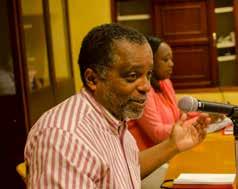
Understanding our connection with Africa allowed us to weave an essential network of the ethnic component of the Afro-Colombian and African populations, which today has expanded beyond them, as well as the global advance that occurs through equity.

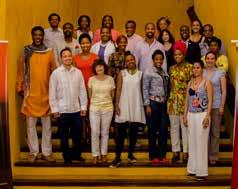
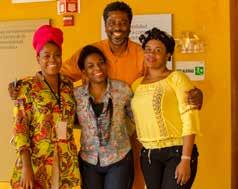

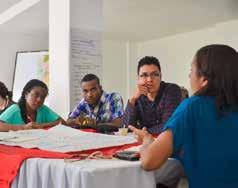


5. School of Community Innovation. At the Massachusetts Institute of Technology (MIT), there is a laboratory designed to work in innovative ways with communities on the fringes. From its Department of Urban Studies, in the process of Colab had been developing new innovation programs at the territorial level in dissimilar places in the world, such as in the Bronx or Haiti. When Paula Moreno attended her studies there, she asked the professors to make a laboratory in the Colombian Pacific to create knowledge, support the development of collective leadership, and build capacities for community innovation.
In 2014, the project was completed. From there, the Community Innovation School was born, a program that conceives new leaderships based on traditional knowledge, local culture or ancestral knowledge systems, supported by new technologies. Development of ideas and prototypes, innovation from the reconfiguration of the existing community assets were the core of learning praxis (www.innovacioncomunitaria.com).
One thing the program made clear from its inception is it would be the Pacific leaders themselves who would co-create the strategies and provide the knowledge, experience, and networks to overcome their own challenges. The overcoming of the problems of the region had to come from the same region, although with the determined collaboration of the School. The presence of internationally renowned tutors and the evaluation of the process led to the incubation of initiatives such as the Chocó Robotics School and Puerto Creativo (Buenaventura).

Today, in the process of Colab has local coordinators in the Pacific coast with a long term commitment to racial equality in Colombia.

EDUCATE 6. Youth and Peace-Building Fund. Violence and marginalization have deep social causes, but also devastating consequences for the future of the young people living in the areas affected by them. Most have great difficulties in accessing higher education due to lack of economic resources, social discrimination or the high rates of violence that restrict and block their options, and that place them as their main victims in Latin America. But there are many, during this distress, determined to change their history.
With them in mind, in 2012 Visible Hands developed a strategic alliance to provide undergraduate study scholarships in Cali and Medellín to young leaders of community youth organizations. The underlying idea was to change the discourse that in those violent spaces all professionals came from. Thus, they would lead their own processes. With the support of BBVA, the EAFIT, and ICESI universities, which understood the size of their social responsibility, this program was started, which continues with ICESI in Cali.
The growth was mutual. For the universities it implied understanding that they must be universal and that the coexistence with other realities broadened their own perspective. The proximity with the difference generated social integration and articulated new dialogues, in addition to the collaborative processes that had not occurred before. The commitment to academic excellence, in this program, goes hand in hand with training to transform the country.
The result was the professionalization of the community youth leaders who today understand something crucial: there is no limit to determine how far they will go. These leaders discuss and build knowledge from a scientific perspective and have assumed that they have a responsibility with their territory and with the construction of peace. Each professional who has graduated from the program is a reference in his family, in his community, and in his organization. Each of them changed the narratives from areas so often marginalized. Today, many are directors of theaters or cultural centers, occupy positions in companies and foundations, and show the reality of social mobility through education.




in academic excellence, but also in self-esteem, empowerment and support from the classroom.
Out of the Education for Peace program in the Colombian Pacific, Educapazcífico, was born, a strategy to empower dreams, which gives students the resources to transform their own reality. It was also a tool created to close social gaps and train both teachers and young people in grades 10 and 11. The primary goal of all this grassroots effort was to improve their performance on the Saber state tests, as well as their leadership skills.
Previous generations in the Pacific have believed in the power of education to change the course of their lives, and this program offered a real option for the educational option to become a path again. Young people took the tools seriously to change their history of inequity and lack of opportunities, and they took up the challenge.

Improving the quality of education for students to access universities has increased the number of college students and, therefore, has triggered leadership and opportunities. Additionally, the push achieved by the program prompted the creation of “Todos Somos Pacífico/We are all the Pacific”, a special line for students from the Pacific in the main government scholarship program.

In 2020, in the midst of COVID 19, Visible Hands accompanies schools in their transition to non-presence due to isolation measures. It has also coordinated efforts with the Ministry of National Education so that the Pacific does not increase educational inequality due to lack of access to connectivity. On the contrary, it has turned the current crisis into an opportunity to insert virtual and non-face-to-face education as an additional strength to the ongoing processes.
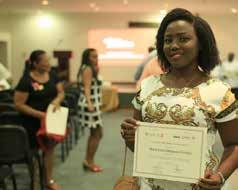
7. EDUCAPAZCIFICO. Transformation happens through education and leadership development. Visible Hands considers working with young people and with the natural receptivity of schools to initiate social transformation and leadership from the grassroots.
The main obstacle to access to higher education is that the low academic results of the Pacific region prevented most of the students from accessing a university.
The commitment of Visible Hands was to create a form of leadership dynamics in young people to turn the school into an ecosystem of transformation, with the support of directors, teachers, and the schools themselves. Thus, they would gain
In most of the country’s territories, women lead social processes and assume the role of leaders. Visible Hands posed a question: “How to allow these women to participate in spaces of power so that they could have an impact, and how to boost their access to the labor market to improve their quality of life?” The result was this program, based in Cartagena and the north of Bolívar, which launched the Visible Hands programs, with a clear focus on female empowerment. Their stories touched the lives of all, and the contribution of the program transformed the lives of dozens of these women. For three years, a total of 92 Afro-Colombian leaders exposed to contexts of vulnerability and members of civil society organizations became the protagonists of a program designed to have more influence in decision-making for change in their communities.
It was a commitment to their training, which included accompaniment and academic reinforcement, leadership training and psychosocial support for their life projects, as well as the strengthening of their organizations and tools so that they could generate income, have financial education, and enter the workplace.
This profound process implied going to their homes, getting to know their communities and breaking with the concept of exclusion from society or that they themselves had. The workshops were held in various places in the historic center such as the SENA headquarters in front of the Mayor’s Office in the Plaza de la Aduana or in the Historical Museum of Cartagena, a place with memories of the Inquisition.

In a segregated Cartagena, black women rewrote history in spaces of pain or exclusion, their role and history. With psychological therapies, a group of personalized tutors, connection with institutions to link them to work and the effective support of the National Endowment for Democracy (NED) and the AVINA Foundation, as well as partners such as the Clinton Foundation, Colfuturo and national and international cooperation agencies, their leadership was consolidated and their lives were transformed, and as a result, so were their communities.
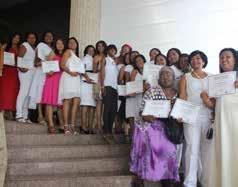
With this program, Visible Hands began to walk its own transformative path and it would be its only program in the Caribbean. Many of them would also do master’s degrees and participate in regional or exchange workshops. The Pacific and the Caribbean are the strength of

TO BE A WOMAN 8. Development Management Training Program for Afro-Colombian Leaders. ethnicity in Colombia, and they meet strategically and inevitably.


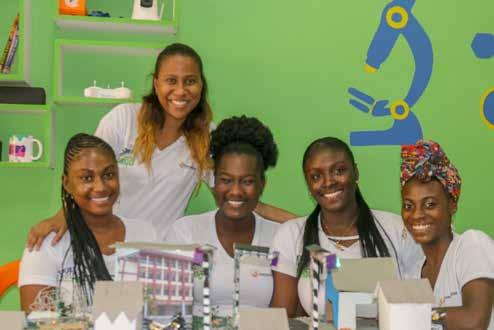
9. Innovation Girls - Chocó Robotics School. Talking about Chocó and innovation may seem, in the opinion of the majority, contradictory. That mental breakdown, precisely, was what the Chocó Robotics School wanted, which incubated the idea in 2016 and began its operation in 2017, focused on the vision that talking about Chocó and technology was natural and possible. In addition, there was another incentive: to make it clear that the talents of boys, girls and women were only an exercise in power. In other words, it was only necessary to nurture their skills and put them in perspective, both nationally and internationally.

With these premises and a strong push, the School of Robotics managed to occupy prominent places at the national and international level and has trained, to date, more than 1,000 children and young people in the Department of Chocó. Visible Hands has accompanied the ideas of this talent from Chocó through programs such as the School of Community Innovation with MIT and MingaLab. However, it is no longer just an accompanying exercise. The School invited the corporation to be a partner in the development of an empowerment initiative for young women in science, technology and innovation. Today, from its classrooms emerge women leaders in the incubation of solutions for the community from their technical knowledge of programming and their training in leadership. In addition, this initiative especially promotes the participation of women with the aim of reducing the gender inequality gap and facilitating their access to quality training and, of course, to management positions in sicence, technology, engineering and mathematics (STEM). From June 2018 to January 2020, four versions of the Innovation Girls program have been carried out, which this year will reach 100 female graduates, thanks to the contributions of individual donors.
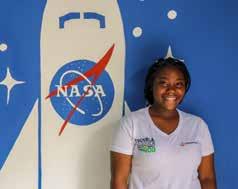
MANAGEMENT DEVELOPMENT 10. DALE (Autonomous Development - Effective Leadership). There is a moment in the DALE program that many consider the hardest moment of all: that is when each young participant walks in front of the mirror and engages an intimate dialogue with himself. There he faces his own reflection and understands the difference between what he wants to communicate and what he communicates to those around him.
That moment in which he stands in front of himself, and before a group of equals, leads each participant to understand that esteem is earned, and courage is forged. An additional revelation emerges all are in a process of convincing the individual power of each one of them. After the mirror, aware of their strengths and weaknesses, they collaborate to generate vital transformations in themselves and in their environment.
This work of deep humanity spreads through each group participating in the DALE program, conceived so that youth leaders develop their life project, gain critical thinking, gain knowledge about peace and post-conflict, deepen their knowledge on youth issues. and peace building, cultural management, project management, communication, management and innovation, and awaken to the possibilities of carrying out your project, hand in hand with high-level tutors.
They have been targeted by this effective leadership program that emerged to allow those who had developed a concept and landed it to see the seed they had sown flourish and turn it into a concrete and sustainable possibility. With practical and basic tools, each young person graduates from the program with the elements to change their own being, carry out their project and become part of collaboration networks.

By 2020, DALE has graduated more than 10 cohorts in Cali, Medellín, Quibdó, Buenaventura and Tumaco, and has reached more than 500 young people. All of them gained in innovation and leadership. As the very name of the project suggests, DALE pushed them forward.



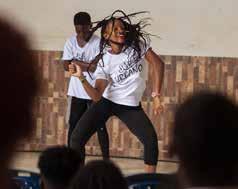

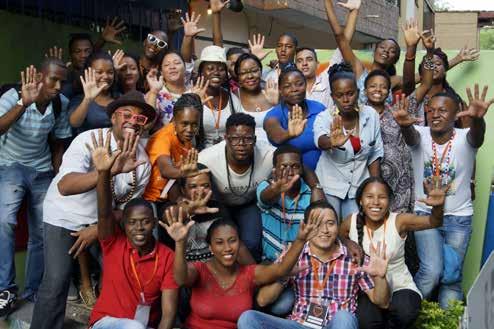
11. Mingalab. Visible Hands proposed the Minglab laboratory to provide support to the participants of innovation projects that were in the beginning stages. Visible Hands implemented this law while always thinking about the effect it can have on the participants and how it can propel them into the future. That meant that those leaders in established organizations who had gone through the process of developing concepts and landing their ideas, but still needed a definitive accolade, could count on a real strengthening of their life.
This was the main goal from the beginning of the laboratory of social innovation for peace and strengthening of organizations. The idea was to provide concrete and definitive support to strengthen solid initiatives. The impact was enormous in the process of transformation of the Pacific. Through the lab MingaLab, participants were able to learn from other experiences and nourish themselves from them, and gain strength in issues that they did not master, such as financial support, brand registrations, and even having the tools to operate .
Since 2016, the initiative has impacted more than 70 organizations in the Colombian Pacific in Quibdó, Tumaco, Buenaventura, and Cali. During this period, the lab has supported strategic communication, administrative, and programmatic decisions, and has strengthened people linked to the project through their training and strategic relationship. Leaders from different cities have connected with leaders in their region to understand their business model and have broken the barriers of distance to link as a single region.
MingaLab is, in short, the space for the concretion of ideas so that they take shape, including direct investment in projects and talents.
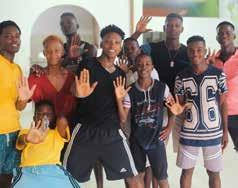
From there, the Young Creators of Chocó project, Pacific Dance, Somos Arte, Tura HipHop, the Chocoan Women’s Youth Network, Chocó Robotics School, This is my Story, Canalón School, among others, who received support in MingaLab, have gained strength… The program’s transformation ecosystem has been so decisive for several organizations that, outside the platform, several of them have make connections to generate new dynamics and spaces, beyond physical borders.

12. Power Pacific School of Economics. In today’s context, power is unattainable if it does not consider economic dynamics. The less idealistic side of the social commitment seems to be the economy, but having a complete knowledge of the system that supports and generates the great decisions, knowing how to obtain resources, manage them, obtain financing, and have the conceptual bases of current economic games and the role of government entities and multilateral agencies, among others, is crucial for social transformation to be possible.
To achieve lasting change, every leader must have a full comprehension of economics. In 2015, the dean of the Faculty of Economics and the Universidad de los Andes, Juan Camilo Cárdenas, spoke on this topic to a group of over 60 fellow professors of economics from across the Pacific. Of all the professors there, none were from the Pacific region. Why is that? What does this mean? Did the absence of economists from the Pacific region have an adverse effect in the development of the region?
To reverse the noticeable gap, Cárdenas worked together with Visible Hands in the implementation of a training program that is linked to the University of Los Andes, in order to develop capacities and expand economic knowledge in the Pacific. In his proposal, he added conceptual bases, practical experiences, and discussions with front-line experts from the government, think tanks, and multilateral agencies. The bet was not only to learn, but to develop in the more than 150 students the ability to analyze the Pacific.
Furthermore, the basic proposal was that the region’s leaders take ownership of the economy in their context, have access to data to design appropriate development programs and plans, technical tools for analysis, and be critical thinkers of the processes that are to be carried out. But, above all, that they understand that the Pacific, with its peculiarities, can provide effective answers to current problems based on its own wealth. Culture, collective land ownership, biodiversity, and human networks are assets that can change the extractive economy for a sustainable economy.
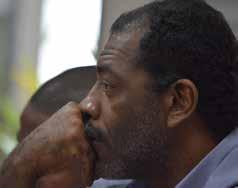
The school organized a production structure based on the economic potential from the region gave results and generated a Pacific seedbed in the Andes. In fact, at both graduation ceremonies there were more Afro-colombian faces than ever before. Thanks to the contribution of the School, the Pacific now thinks of power from an economic dynamic and adds from the community to the community. This has multiplied the impact of the bet, to the point that the University of Los Andes set up a Pacific Agenda that today opens the doors to more than 100 undergraduate students in the region and works to open the master’s degree process.

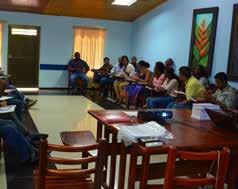
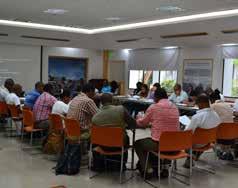

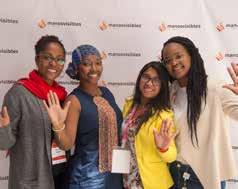

13. Potencia Pacífico (Pacific Power) – Master degrees in Cultural and Audiovisual Management and Production, Development Management and Business Creation. After gaining power, what comes next? This type of reflection arose almost a decade after working to consolidate the Poder Pacífico and understanding that it was time to go further to continue challenging the structures imposed in the regions, rethinking the country, and building it from the margins. After gaining power, it was clear, there must be empowerment.
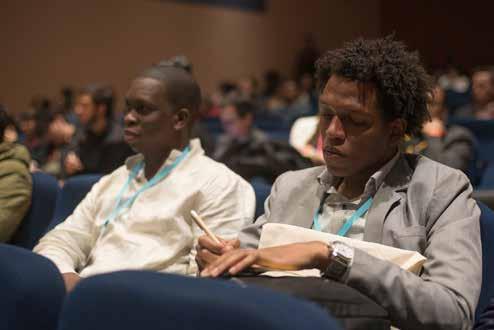
The Visible Hands concluded that power, as a word, means all the possibilities that an opportunity held, and everything that can be expanded and converted. Visible Hands had understood this throughout its previous process, that the Pacific contains power in culture, power in biodiversity, power in resistance, and power in community union, as well as power in human capacity and the reach of its leaders.
The history of the Pacific is the history of 1,300 kms of coastline, inhabited by 1.6 million talented people, without the right conditions to develop and demonstrate their enormous potential; with the youngest population in the country, with 35.8% of its people between 15 and 34 years old; a territory that looks towards Asian markets and the American West, in addition to being linked with Chile, Peru, and Mexico through the Pacific Alliance, and with Africa due to its Afro-descendant population. To have the ability to take advantage of this competitive advantage, the Pacific needs a managerial elite that takes advantage of this reality, a group that stops waiting for actions from the central government and promotes its own development.
The Potencia Pacífico Fund will give 200 entrepreneurial leaders the opportunity to obtain postgraduate scholarships in areas essential for development between 2020 and 2030. The Fund will focus on developing managerial capacities in cultural management, communications, development management, business creation, and many others. In a universal way, it will promote capacities in economics and technology. The Potencia Pacífico generation will oversee dreaming and building a creative and productive Pacific, which is the center and not the periphery.
Promoting cultural talent, creating a company and the development agenda unites all aspects in one. This gave rise to the master’s program in Management and Cultural and Audiovisual Production, as well as the master’s degree in Business Creation and the master’s degree in Management and Development Practice. These first three master’s degrees, the come from a Fund designed for this new decade, saw the light of 130 leaders. By 2030, it should reach 200 scholarship holders and position the Pacific as a power that transcends the cultural and becomes an exercise in sustainable development and growth.
With the support of the University of Bogotá Jorge Tadeo Lozano, the ICESI University, and the University of Los Andes, and the contributions of the Ford Foundation, Sura Foundation, and USAID, financial support is provided to 130 leaders of the region with the intention to change the narratives of backwardness and isolation for those of a power through its main asset: culture. The program will nurture a network of leaders, especially women, who will influence the ecosystem of institutions at all levels through their own development model. This process will think about new futures and an advocacy agenda from, by and for the Colombian Pacific coast.
TO MAKE CONNECTIONS 14. Internship Program – Pacific Connection. In the chain of transformation through education and leadership, training there was a crucial link to formal learning in pure practice. An occurrence could not be generated if a means was not created to access formal workspaces. That missing crossroad was necessary for the path to fully empowering leaders to be successful.
Visible Hands had this connection clear from its early years and in 2013, opted for the formation and connection of the leaderships of the Pacific region, within its Pacific Power strategy. Finally, in 2016, the Internship Program - Pacific Connection was launched, designed to strengthen the capacities of leaders in the region. Its approach aimed at the empowerment of leaders through professional, practical, and real experience.
The Visible Hands network of contacts made it possible to establish connections and make a presence in friendly institutions. That contact with reality expanded the world of great leaders, who until that moment had not been able to access a job alternative. The initial prevention of the companies towards the professional practitioners coming from the Pacific was altered when they saw their capacity and knowledge of the territory. Their presence in the places of incidence also generated new relationships and changed the pre-established social dynamics.
By weaving that web, Visible Hands connected opportunities with capabilities. But furthermore, it created new links and strengthened the leadership of the young graduates by allowing them to enter the labor market. Everyone won: the young people won, who enriched their talents, and the entities receiving that talent, through the effective inclusion of these leaders. There are initiatives and individuals leading transformations at all levels and in all sectors in Africa and its diaspora. It would be important for these positive examples to have the same visibility and resonance as the negative examples to inspire, promote and develop solutions in Afro-descendant communities outside and within Africa. Susana Edjang
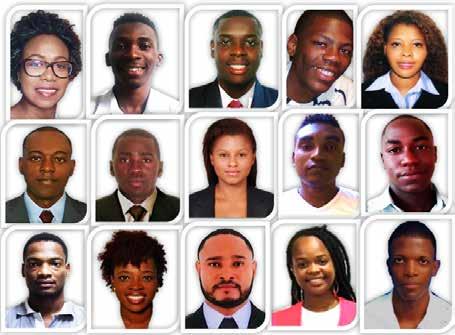



15. Pacific Connection. Networks are only effective when their members are interconnected. In the Pacific, unlike other regions in the country, contains geographical distances that seem, at times, insurmountable. The biodiversity and conditions of the region make physical encounters complex, unless there is an option that allows its inhabitants to travel to meet, discuss, and connect with each other.
When physical encounters occur, speaking of the region ceases to be a discourse to become a fact. Pacific Connection was born to be that knot that unites the leaders when they meet, and so that when they meet, they also recognized and generated dynamics around collective agendas.
This community conversation, in which key thoughts are discussed, and in which tutors and leaders learn and relearn from the experiences of the region, is Visible Hands commitment to reinvent itself from collective power. The Pacific, in this period, has learned that if it integrates knowledge and experiences, these encounters will seal learning and enrich the diversity of the region.
Since 2013, the Pacific Connection workshops and meetings have allowed more than 1,500 leaders to reflect on their dynamics and for new initiatives to emerge. The leaders have used spaces for listening and mass thinking to be able to generate effective advocacy platforms and share the Peaceful Thinking: by weaving encounters the future is woven.
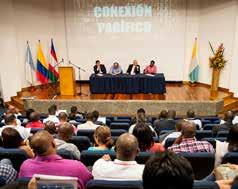
Weaving encounters weaves the future
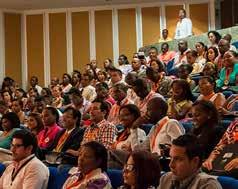
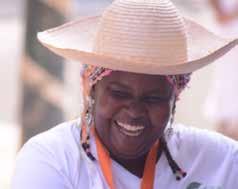
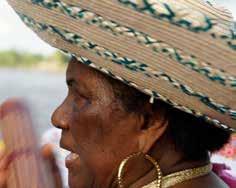
NARRATIVE 16. Pacific Song. The Pacific sings, either to drive away sorrows, celebrate life, say goodbye to those who are leaving, or to welcome those who arrive. The Pacific is a land of voices and singers, but more specifically the voices of women most often are the loudest. They are the midwives, those who transmit the word and give support, those of wisdom, charm, reproach, and sweetness. Their voices are tradition and culture of the Pacific.
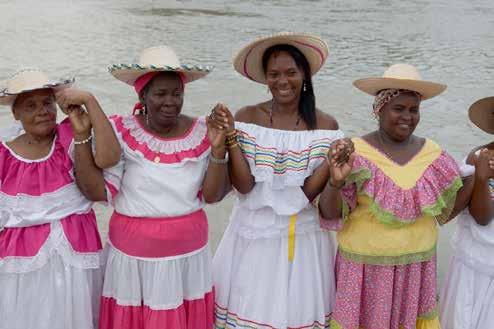
Their voices, too, deserves to be heard and is worth being broadcast loud and strong. Thinking about those voices, this program was created with a clear gender focus to rethink their role, form a network of interpreters in the Pacific that would exalt their work, establish them as peace builders and, above all, give them the relevance they deserve.
Empowering is also making people see themselves. And that is the goal that Pacific Song sought.
The singers understood, during this process, that they were visible voices and hands, and that their contribution was awe-inspiring to unite and maintain the ancestral legacy of their territory. At the same time, the Pacific understood that the region sings to heal itself. Paula Moreno herself knew it when she asked the leaders of the Pacific, during the Peace Process, how they overcame mental health in their territory and they took out their guasá to start singing, in response.
The exchange of experiences allowed them to recognize themselves, discover their musical and sociocultural potentialities, and learn about the importance of their role thanks to the leadership of the music producer Julián Gallo, the teacher Nidia Góngora and the researcher Ana María Arango. The program focused on nurturing experiences to the participants and generating appreciation for their role as leaders and women and ended up giving rise to unified voices.
By broadening the possibilities of the participants, many of them were allowed to change their own lives in their family environment and overcome extreme situations, such as intrafamily violence, in addition to valuing their own trade. Connected through the Cantadoras Network, this project directed by the Nariñense Culture Foundation for the rescue of Canapavi values and identity (strengthened through the MingaLab), served as a model to rethink other forms of cultural management for organizations with complex characteristics and asymmetric. Their greatest achievement, however, was allowing them to be a unified and connected voice, capable of addressing peacebuilding through their resilient processes and ancestral knowledge.
Pacific Song was present in spaces such as the Petronio Álvarez Festival, where in addition to making itself visible with its spiritual and powerful musical presentation, it presented the sound memory that was consolidated in a record production of more than 10 songs inspired by peace, resilience, and resistance.
The Pacific Power needs the word to be, the word seals the pacts, allows the transmission of knowledge, and is the link that connects cultures and peoples. Each language is a culture and each people use speaking and writing to transmit its legacy and knowledge. Therefore, preserving it is crucial to preserve the inheritance, but at the same time, it is powerful when it comes to modifying notions of power and changing existing imaginary. Innate leaders need the word to convince and empower themselves. To do so, however, they must feed on it and read to gain tools that broaden their criteria. This is critical in the Pacific, where the book ecosystem is precarious and reading comprehension is often a shortcoming. With this in mind, the Power Pacific Narrative program emerged, a commitment to understand what people read, encourage reading, and generate interconnected laboratories: The Black Narratives, The African Literature, and now The Afrodiasporic Narratives.
The Laboratory of Black Narratives was a project to promote reading and writing as an empowerment strategy, from a network of reading and writing circles in the Pacific, Medellín, Cartagena, and Bogotá. It introduced different institutions and organizations to generate new stories about leadership and advocacy processes by reading the book, The Power of the Invisible by Paula Moreno, and acquiring tools in literacy. The African Literature Laboratory connected with the literature of the diaspora to generate reflections that will help to question their own themes, such as when they read A Man of the People by the Nigerian author Chinua Achebe, and generated a psychological and sociological analysis of generational changes and politics. In 2020, the book, In my Skin by Lázaro Ramos, Brazilian actor, filmmaker, producer, and writer, will be the next content to energize the more than 100 reading circles in the Pacific, Medellín, Bogotá, and Cartagena.
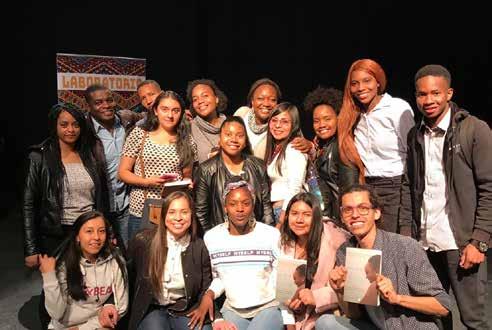
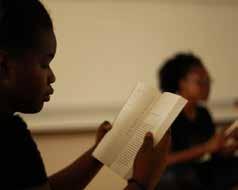
These laboratories are more trainings in humanity than other workshops. Inspiration and possibilities are spread here, so that new generations understand that it is time to read, learn, and tell their own life stories. In 2020, the first anthology of this process will be published. During the isolation by Covid-19, Visible Hands created a virtual space for creation and reflections to empower Narratives of resistance. This became the virtual component of the “Come, I Will Read to You,” strategy, in which not only written narratives are integrated, but
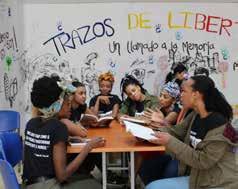
17. Come, I Will Read to You (Narrative Laboratory).
also sound and audiovisual ones.
TIMELINE OF VARIOUS PROGRAMS
There are dozens of words that define Visible Hands. One of them is Journey. This is the journey or path traced for change, traveled through programs that have affected the lives of at least 4,000 leaders in the country:
2010
Development Management for Afro-descendant Leaders (design stage)
2011
Development Management for Afro-descendant Leaders (design stage)
2012
Development Management for Afro-descendant Leaders version I – 2012 DALE, Quibdó I and Cali Youth and Peace Building Fund, I (2012 - 2016)
2013
Development Management for Afro-descendant Leaders version II - 2013 LIDERA (Afro-Colombian Leadership) Washington D.C. DALE Medellín I Pacific Power Mastery - Cohort I Pacific Connection I and II Regional Workshop High Government School I: Quibdó and Cali Youth and Peace Building Fund, I (2012 - 2016)
2014
Development Management for Afro-descendant Leaders version III - 2014 Youth and Peace Building Fund, I (2012 - 2016) DALE, Buenaventura I and Quibdó II Pacific Connection Workshop III High Government School II: Buenaventura, Cali, Quibdó, and Tumaco School of Community Innovation
2015
Youth and Peace Building Fund, I (2012 - 2016) DALE Pazcífico: Buenaventura, Quibdó, and Tumaco School of Economics I MingaLab I Afroinnova I Educapacific I
2016
Youth and Peace Building Fund, I (2012 - 2016) High Government School III: Buenaventura and Quibdó Afroinnnova I Pacific Connection Internship CantoPazcifico MingaLab I School of Community Innovation II EducaPazcífico First Pacific Education Fair: Quibdó, Buenaventura, and Tumaco Laboratory of Political Innovation for Peace.
2017
Educapacific III High Government School III: Buenaventura and Quibdó Pacific Connection Workshop IV School of Economics II Afroinnova I MingaLab II
2018
Educapacific, Phase IV Second Pacific Education Fair (Quibdó, Buenaventura, and Tumaco) DALE Pazcífico: Quibdó, Buenaventura, and Tumaco Innovation Girls II Afroinnova II MingaLab III
2019
MingaLab IV Laboratory of Black Narratives Laboratory of African Literature DALE Future: Quibdó, Buenaventura, and Tumaco Innovation Girls III Pacific Connection Workshops: Regional Meetings 2019: Quibdó, Buenaventura, and Tumaco 2nd Youth and Peace Building Fund Power Pacific - Master’s Degree in Management and Cultural and Audiovisual
2020
Pacific Power - master’s in management and development practice Educapacific V MingaLab V Laboratory of Afro-diasporic Narratives Innovation Girls IV DALE Pazcífico: Buenaventura, Cali (North of Cauca), Quibdó, and Tumaco DALE Cultural Pacific Power - master’s in business administration and (Master’s program in Development Practice (MDP)
“Deconstruct those discourses and narratives that have constituted the sustenance so that we justify the unjustifiable. Take up the cause of those considered the others: the impoverished, not the poor; the ones who cannot see us, not the invisible; the marginalized groups looking for success, not the sidelined, in order to change imaginaries that invite us to move out of our comfort zone and share our privileges… I invite you to do so.”

Words by Deisy Elena Bermúdez Keynote speech of the II Cohort graduation of the Pacific Power Master’s Degree. December 2017, EAFIT University (Medellín)







